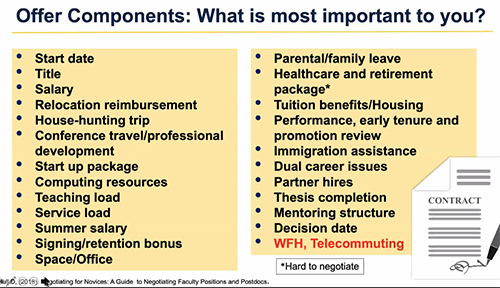
When asked why you left your job, it can be hard to choose the right answer and not lie. Here are some ways to answer this question without scaring away recruiters. The best way to avoid scaring recruiters off is to fram your response.
Answering a question about your reasons for leaving a job
Prepare a truthful answer when your interviewer asks why you quit the last job. However, you should not lie or mention the negative aspects about your last job. It doesn't suffice simply to say you quit because there were poor working conditions, low wages. They want to know why you quit or were laid off.
The interviewer must believe that you have genuine reasons for leaving your job. In other words, it is not acceptable to state that you have quit your job because you are passionate about bees. This is a bad reason, especially if the job you are applying for matches your experience and skills. The interviewer should be convinced that your reasons are real and that your skills meet the requirements for the job.

Avoid lying in interviews
It is obvious that lying during an interview can have negative consequences on future job offers or hiring history. No matter whether you intend to lie or not the interviewer can tell. It can also harm your reputation in your chosen industry. A bad reputation can make it difficult to find new jobs or connect with others. As a result, it is better to refrain from lying in an interview if you want to increase your chances of landing a new job.
It is best to admit your weaknesses in interviews to avoid lying. Most people will not admit they were bad at a specific skill, and it would appear they were lying. You can, however, share that you don't enjoy working with people and prefer to ride solo. Although a little white lies can be okay, it is not a good idea for you to lie about your teamwork skills.
After quitting a job, how do you prepare for a job interview?
Although you may feel overwhelmed and nervous after quitting your job, there are ways to make things easier. It is important to maintain a positive attitude. You should try to emphasize the positive aspects of your last job and why you are looking forward to a new role. Avoid being emotionally attached to your previous job. This is especially important if you will be asked questions about why you quit.
The interviewer is looking to see your ability as a team player and adaptability. Keep in mind this. Employers can pick up on inconsistent language and harsh words. For example, you can mention how much you have grown in your last job, but now you're seeking more responsibility. A course may help you prepare for an interview.

Framing your answer to avoid scaring off recruiters
If you're being asked why you left your last job, make sure you have a prepared answer. While being honest is important, it's not a good idea to lie. Instead, list at minimum three reasons why your job was terminated.
The interviewer won't want you to tell them that you have quit your job due to it being a bad fit. Instead, they will be looking for positive experiences and soft skill. Your answer should not sound too negative or show you aren't passionate about the job. This will likely scare off the recruiter. It's important that you are honest about your situation. However, your answer will be the first impression potential employers have of you.